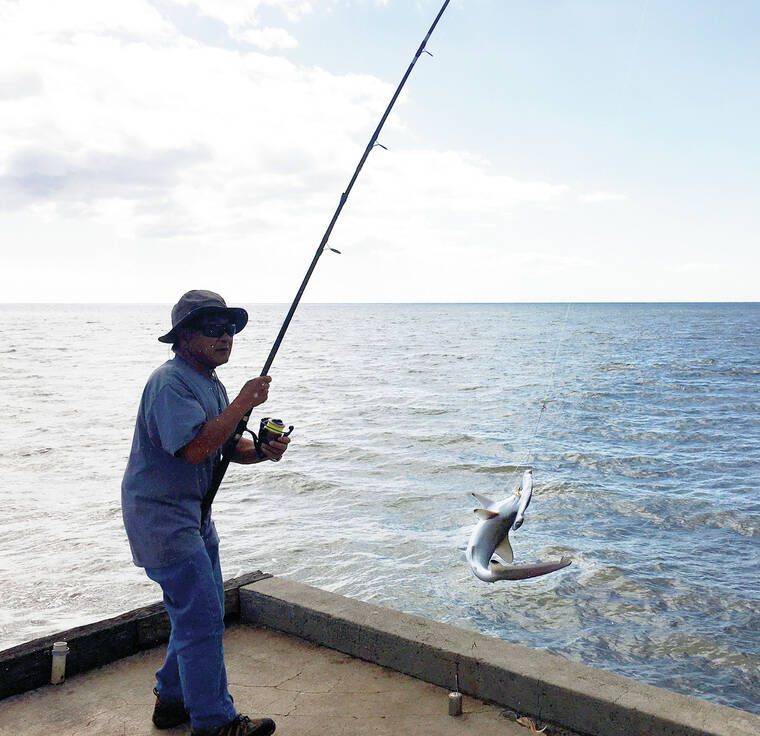LIHU‘E — Officials briefed fishers on proposed state legislation affecting their industry during a meeting held by the state Department of Land and Natural Resources Division of Aquatic Resources (DAR) Thursday.
Bills highlighted by DAR personnel included House Bill 1653 and Senate Bill 2761, which would bolster aquatic-resource penalties, HB1930 and SB2767, which would contribute additional funding to the Hawai‘i Fish Aggregation Device (FAD) Program, and SB2065.
“This is probably going to be one of the hotter topics, fishing-related, this session,” DAR Commercial Fisheries Program Manager David Sakoda said of the last measure. “It prohibits the possession or use of unmanned aerial vehicles, which is another word for drones, in state waters for purposes of fishing.”
Sakoda was correct. The measure sparked debate among attendees, who voiced both general opposition and support in the online meeting’s chat forum.
Some critics of the bill argued its language is vague, claiming it’s unclear if the ban would apply to drones used to sight fish as well as drones used to catch them with attached gear.
SB2065 will come before the Senate committees of Water and Land and Agriculture and Environment on Monday, Jan. 31, at 1:30 p.m. Hearing notices can be found online at capitol.hawaii.gov.
DAR officials provided a tentative overview of the division’s goals for 2022.
According to Sakoda, a lay-net-permitting system and rule package that includes a nonresident-recreational-marine license should make headway this spring.
“The first on the list, moving forward, is the lay-net rules,” Sakoda said.
Lay nets were already subject to registration, rules and restrictions when the state Legislature passed Act 45 into law last year, having deemed existing measures insufficiently curbed illegal practices.
The forthcoming rules will address permit fees and provisions for revocation, suspension and withholding of permits for noncompliance.
Sakoda said the completion of a comprehensive licensing-rule package is DAR’s third-top priority.
Money collected through the nonresident license will help fund the FADs program.
About 23 of the state’s 55 FADs are currently missing, DAR reported Thursday. Nine replacements are slated for installation off Kaua‘i and O‘ahu sometime in the near future.





